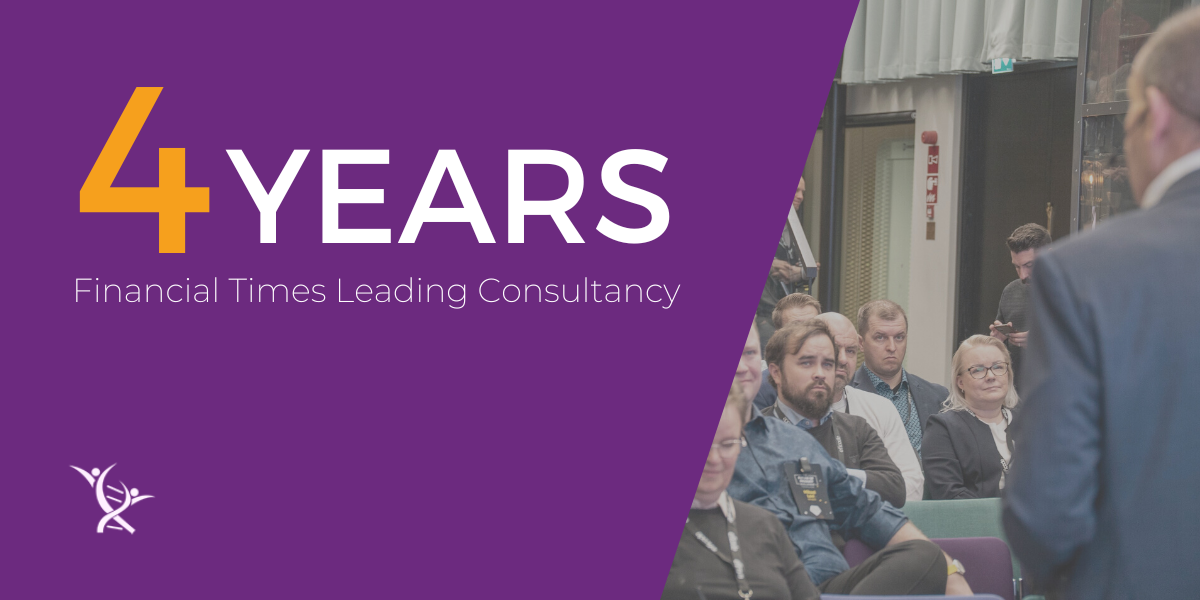Our recent guest on the podcast, author Vanessa Patrick, Associate Dean for Research, Professor of Marketing, and researcher in the Consumer Behavior Marketing field, has a new book, “The Power of Saying No: The New Science of How to Say No that Puts You in Charge of Your Life.” The book addresses the area of self-regulation or self-control. Let’s talk about what she shared here since many of you probably have to deal with this situation in your life, too.
While backed by the scientific method and lots of research, Patrick’s book also takes a self-help approach to embrace the pleasure of consumption but with boundaries that help with self-definition. Patrick says adding these constraints enables you to make decisions that align with your identity and create more fun and happiness. She calls this approach compassionate self-control, meaning your needs drive your decision. Instead of looking out for cues as to how to behave, Patrick encourages people to look within.
Patrick has written several papers about self-control., which position self-control as an upbeat version of self-discipline. She sees self-control as a reflection of your values, as opposed to hard and fast constraints.
Patrick has written several papers about self-control., which position self-control as an upbeat version of self-discipline. She sees self-control as a reflection of your values, as opposed to hard and fast constraints.
Watch Colin talking about this on YouTube:
Subscribe to our YouTube channel here to see all the latest videos!
The book introduces the idea of personal policies, which are rules we set for ourselves to guide our decisions. Patrick says many people think about putting up rules as boundaries, like barbed wires that protect them. However, Patrick pictures rules as red velvet ropes that are soft and pretty, set up to shape people’s decisions and choices.
In business, people don’t say no enough, particularly to their boss. But this inability to say no goes home with people, too. Plus, gender is part of it. Women are more likely than men to say yes to things, even when not aligned with what they want.
However, Patrick has three competencies that help you navigate this tradeoff, which she calls the Art of Empowered Refusal. Empowered Refusal describes saying no in a compelling way that does not invite pushback from others. The three competencies include:
- Awareness: This is the ability to look inward and identify your priorities, your preferences, your beliefs, and what you care about so that you can use that lens to sift through the different asks.
- Rules, not decisions: These personal policies are based on our values and priorities and guide our operations.
- The totality of self: This concept describes the critical nature of using language from a place of empowerment.
The Importance of These Competencies
Patrick says the first thing you need to do is develop self-awareness, meaning to know where your purpose lies and the opportunity costs. Then, you will also understand what tradeoffs you’re willing to make.
Then, every time a request comes your way, you use that particular lens to evaluate the benefits and the costs. For example, when it is easy to do and benefits the other person a ton, you should do these things. An example might be when someone asks you to pass the salt. It’s easy for you to do, meaning it doesn’t take much energy, and the person gets a significant benefit. However, other asks where the use to the other person is unclear, and the cost to you is super high, need more consideration.
Rules are next because they help you say no. When these rules are in place, we have an infrastructure, a platform from which to say no. If you say, “I have a policy not to do this,” or, “I have a rule not to do that,” people often respect your decision. Patrick says you don’t get pushback when you speak from your identity.
The final one is the totality of self, which is how you come across as confident. When presented properly, the Totality of Self defends against pushback after your refusal.
Using words from a place of empowerment helps defend against pushback, too. However, Patrick explains that if your words are accompanied by weak body language, you lose empowerment.
The totality of self is bringing your whole self, body language, how you speak, and all the nonverbal cues to portray confidence. This ability stems from having those personal policies in place and speaking from your identity.
Starting with Yourself First
Patrick’s starting point is always to deal with yourself first. It naturally spills over to other people if you can develop a mastery of yourself, use self-talk, and set up personal policies. But, as Patrick points out, it is impossible to create all these boundaries for other people but then be loose in one’s self-discipline. Therefore, mastering managing yourself comes first, then you can deal with other people.
I have some experience with this area. I recently lost a lot of weight. Part of what I learned in this last program is how to manage my emotions about food. For example, if there was something I wanted to eat but knew that I probably shouldn’t, I usually would have said, “No, Colin, you can’t have that.” However, I would feel frustrated the entire time, like I was in a fight with myself. This latest program encouraged me to say, “Now, Colin, maybe we can have a bit of that later instead of now.” This second way of talking to myself helped. It felt less like a fight and more like procrastination.
Patrick likes the idea of strategically procrastinating in her self-discipline approaches. Deprivation is prone to backfiring because we all know that when we can’t have something, we want it more. Desire is a powerful emotion.
However, the desire could wane if you say yes to the decision but then delay it. In the case of dieting, it could mean the difference between having a good day or a bad day.
Patrick also thinks the power of language is critical. How we talk to ourselves matters. So, if we can frame our self-talk to empower ourselves, we can also bring out the best in ourselves rather than diminish ourselves.
Using No About Money
For most of us, money is a big deal. When asked to borrow money, most people make an excuse. However,
Patrick says that while excuses might work in the short term, they don’t in the long term. Five years later, the person might return and ask again.
However, if you share your policy about loaning money instead of an excuse, that might have legs, Patrick says, meaning that the long-term effect of that refusal sticks. It’s your stance on loaning money, which isn’t likely to change.
I hadn’t thought about it that way before. It essentially changes the locus of control, which, you might recall, is a psychological concept about whether you have control or the universe does. When you have a “policy” about loaning money, it assigns that locus of control to the policy. If it were up to you, you would lend that person money, but that darn policy!
So, What Should You Do with This Information?
This concept of saying no instead of yes has many things that sound great about it. However, at the moment, it can be much harder to do than it would seem. So, Patrick shared a few practical steps you can take to harness the power of saying no in your life.
- Choose the domain you want to work on first. Let’s say you struggle with self-regulation. So, you think about how to start saying no to yourself. However, if you have trouble saying no to others, start there. The idea is to focus your efforts on the most crucial area for yourself, where you want to see the most change.
- Reflect on why you want this change. Maybe you have too much stress. Perhaps you need to carve out more time for something else. It could be you are too tired to keep it up. Whatever it is, understanding what you want to gain from this exercise is essential. What will it provide you that you don’t have now: relief, time, rest? All three? Knowing the benefits of the process will enable you to focus and make change happen.
- Develop personal policies and self-awareness. Having these helps give you something to guide your decisions. It might also help you take a breath before the “Yes!” slips out of your cooperative mouth. These policies will also serve you well when you have to say no to people that won’t accept no for an answer.
- Practice empowered refusal. Think of the actual language you will use, and remember to have your body language reinforce it. Otherwise, it loses its empowerment.
- Beware of the Walnut Trees. Patrick calls people that are especially good at getting people to say yes to things they don’t want to do Walnut Trees. That’s because walnut trees are beautiful, but they exude a natural herbicide into the ground, destroying all the plants around them. However, if you can recognize their strategies, like getting a home court advantage or asking you in person (which makes it more challenging to refuse) instead of over the phone, you can strategize, too.
The power of saying no is challenging because we are conditioned to say yes. Research from Australia indicates that we are much faster to say yes, regardless of culture. Patrick says that we are so socialized to cooperate and agree, that we respond with yes faster than no. However, she would have us all slow down and train ourselves not to jump to that default response.
Patrick says her number one rule is never to say yes immediately to anything. Instead, she says you should always consider whether this is worth you saying yes and that the tradeoffs are not too dear. However, if it isn’t, think about how you can phrase your refusal in an empowered way. She says it takes practice, even for her—and she wrote a book about it.
We can help improve your Customer Experience and Marketing and gain growth. Beyond Philosophy has been recognized by the Financial Times as the leading management consultancy for four years. Why not talk with Colin and his team about how we can help you gain growth? Click here.





